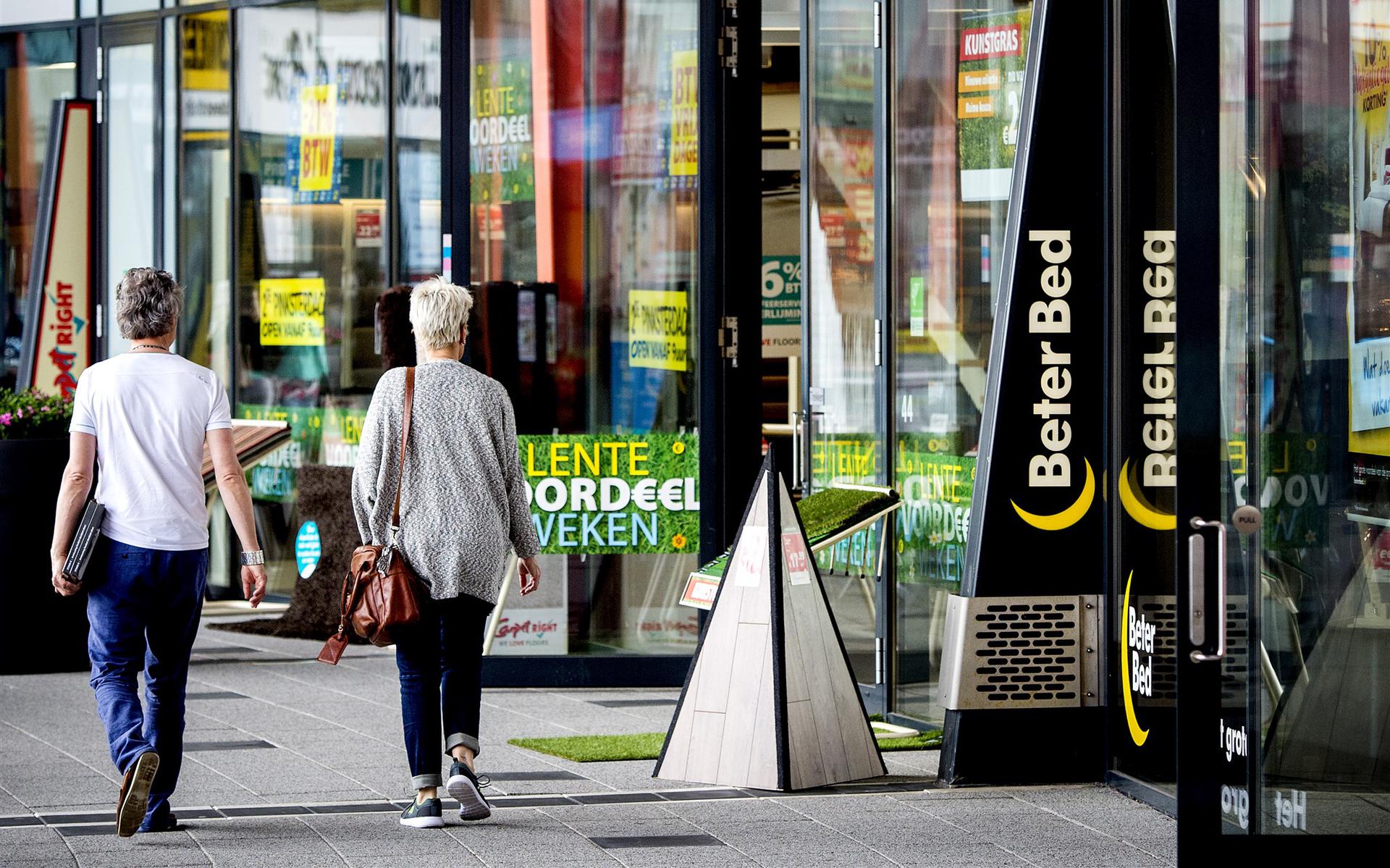Entrepreneurs on the Woonboulevard in Groningen do not plan to remove advertising from the facade. Not even if the municipality saddles them with the new advertising tax.
That is the expectation of Martijn Vogd, owner of Vesta Meubelgroep and spokesperson for Woonboulevard Groningen. The levy can amount to 16,000 euros per company. The amount depends on the size of the commercial message.
Vogd emphasizes that companies on Hoendiep and Peizerweg invest in visibility. They want to be recognizable. “The municipality has drawn up rules for this. If you adhere to this, you will receive a permit. It is a legal expression that must now be taxed. That is an insane measure. I can’t imagine that signs of one square meter will soon be hanging here.”
That is the size that, according to the municipality of Groningen, will result in an exemption from advertising tax in two years. According to Vogd, the municipality should focus on removing illegal advertising. “Fine companies that do not comply with the rules and leave permit holders alone.”
Where shopkeepers in the city center in particular are on their hind legs, the chain stores have kept their powder dry until now. According to Guido Halman, manager at Waarborg Vastgoed, the urge to protest against advertising taxes is not yet widespread among these companies. Vogd does not rule out that permit holders may seek legal assistance. “If that happens, I think the municipality will spend more than the planned implementation costs of 1.500,000 euros. It would be better to look for improvements together with the business community.”
Waarborg Vastgoed rents business space to 300 companies in Groningen. Of these, approximately 50 to 60 display neon signs. “I have the feeling that a large number of people do not yet realize what advertising tax can mean for them. The media has placed a lot of emphasis on shops in the city center. It may have escaped the attention of many large retailers.”
According to chairman Harrie Bouma of the Zuidoost Business Association, a company like IKEA will probably not worry about this levy, even though it could receive a bill of at least 16,000 euros per year. Bouma will address the city council on behalf of the companies on Wednesday. “Because we believe that advertising taxes do not exactly increase the bond between the municipality and these companies.”
Bouma states that the involvement of the ‘big shop boys’ leaves much to be desired. “The municipality wants them to participate in the greening and sustainability of business parks. Every company on Sontplein pays 5,000 euros annually to keep the area clean. I don’t think that advertising tax increases the enthusiasm to think further about the design and management of public space.”
To the extent that the large retail companies have reservations, they are mainly expressed by local business associations. Vogd would like to point out that the municipality wants to remove 500,000 euros in advertising tax at a time when companies are dealing with high personnel costs and energy costs, but also with high inflation and increased housing costs. “The bottom line is a reduction in returns. So you are less able to invest in your company. Let alone contribute to the quality of public space.”
The city council will meet on Wednesday to discuss the advertising tax. It looks like the Mayor and Aldermen are sticking to their guns. It remains to be seen whether a majority of the council will support the measure.
